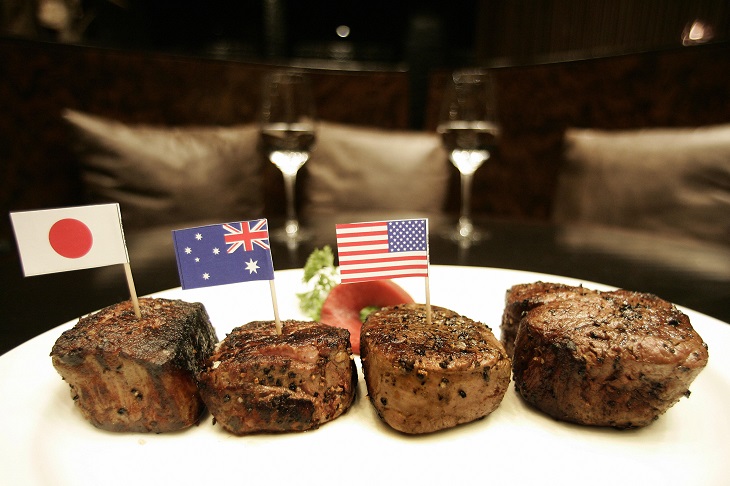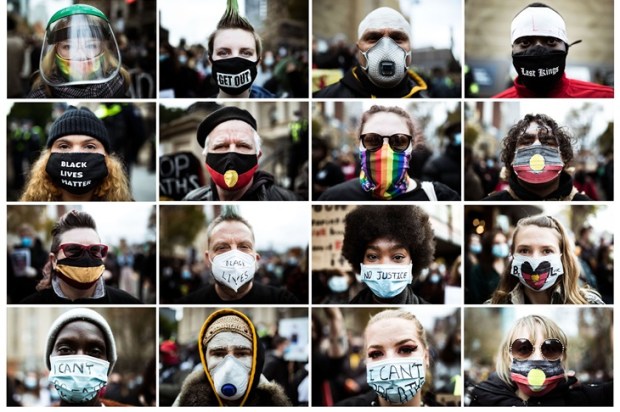Yet again, farmers are under attack. This time, it is the beef industry because, apparently, cattle burp and fart out methane and we’ll all fry-and-die because of the accelerated global warming produced by this methane. Is this fact or fiction? In my field of science, we often do mass balance calculations because material is added, exchanged, and lost during natural processes. Let’s do the same with the beef industry.
Grass grows by using carbon dioxide from the air as plant food. Why do climate activists want to reduce the amount of plant food in the atmosphere? Cattle eat grass, some grass remains as roots and stubble, and hence not all carbon atoms in grass end up in cattle. The carbon from grass is stored in meat, milk, intestines, bones, and skin and the amount of stored carbon increases with growth. Semi-solid waste materials from cattle fertilise grass for further recycling of carbon.
Humans are omnivores with teeth for cutting plants and animal flesh and then masticating to create a large surface area to assist digestion. We have the gut enzyme trypsin specifically for breaking down meat. Not all plant material can be broken down into nutrients which is why there is little nutritional value in us eating grass, stems, wood, or bark. Unlike cattle, humans cannot digest cellulose in grass. Bacterial and enzyme reactions in ruminant’s stomachs release the gas methane as burps and farts during digestion. This methane, a carbon-hydrogen compound, very quickly oxidises in the atmosphere to carbon dioxide and the most abundant greenhouse gas in the atmosphere, water vapour.
For me, there is nothing like medium rare beef with a matching red-coloured fluid derived from releasing carbon dioxide into the atmosphere by grape fermentation. The beef is digested in my body because of trypsin which breaks down meat into amino acids for circulation in my bloodstream. Meat fat ends up as brain food. Vegetarians and vegans ignore the benefits of human evolution and waste trypsin by not eating meat. In evolutionary terms, meat-eating has allowed the human brain to grow over time. In a past life when I took university student geological field trips, I noticed that the meat eaters were the first to the tops of mountains, vegetarians were struggling way behind and vegans were still trying to work out how to get out of the vehicle!
Some of the carbon in beef I eat is used and stored by my body, the rest is oxidised and exhaled. I breathe in air with 0.04 per cent carbon dioxide and exhale air with more than 4 per cent carbon dioxide. The gaseous waste product from cattle digestion is methane, and the gaseous waste product from human digestion is carbon dioxide. Some of the milk or cream I use in coffee and on morning porridge is stored in my flesh and bones as is the butter used in cooking.
When I’ve snapped my hobbles and decompose in a grave, most of my body carbon, including that from eating beef, will be released as methane and the rest will end up sequestered in soils. Blood and bone from cattle is used as a fertiliser and is sequestered in soil. Cattle skins are used to make leather which is sequestered into footwear and other leather goods. The whole process of going from grass to grave involves a carbon cycle and short-term sequestration of carbon atoms.
The number of carbon atoms returned to the atmosphere from beef farming is less than that removed by grass growth. Therefore, cattle farming and eating beef is a carbon sequestration process. If the popular mantra is used, we are saving the planet by eating beef.
If we do not eat meat, then grass decomposes anyway and releases methane into the atmosphere for oxidation to carbon dioxide and water vapour. If the grass is burned, carbon dioxide is returned to the atmosphere. The cycle of atmospheric carbon dioxide via meat production and digestion removes carbon dioxide from the atmosphere and then later releases this carbon dioxide back to its source. What’s the problem? Whether grass is used to grow meat, decomposed, or burned, no new carbon atoms are created in this carbon cycle and, by growing beef, some carbon atoms are removed from the cycle for short-term sequestration.
It is absolute nonsense to claim that beef farming accelerates hypothetical global warming. Carbon atoms are just being recycled. We are being conned with a scare campaign by unelected climate activists who want to control every aspect of our lives, including the source of our animal protein.
If beef is replaced on the menu by insects, then I’ll pass. I will get all my nutrients from 47 pints of Guinness, 2 glasses of milk, and one of orange juice each day.
Emeritus Professor Ian Plimer’s latest book “Green Murder” could not have been written without 2GR wagyu and fermented fluids.
Got something to add? Join the discussion and comment below.
Get 10 issues for just $10
Subscribe to The Spectator Australia today for the next 10 magazine issues, plus full online access, for just $10.


























Comments
Don't miss out
Join the conversation with other Spectator Australia readers. Subscribe to leave a comment.
SUBSCRIBEAlready a subscriber? Log in